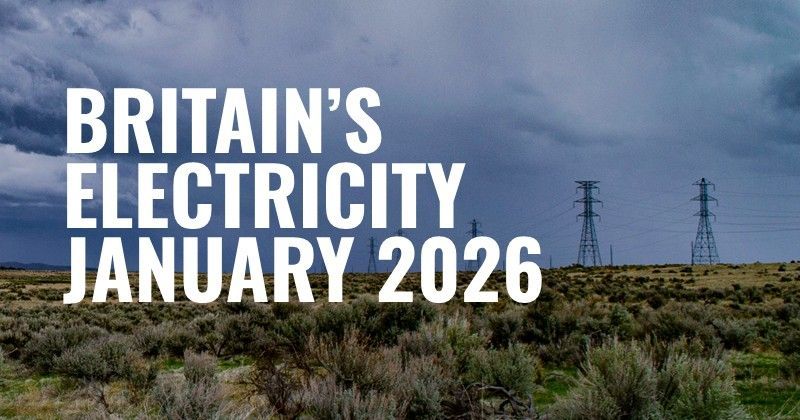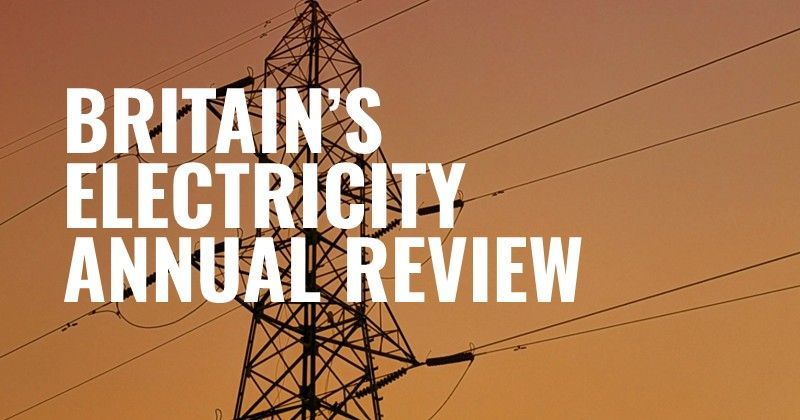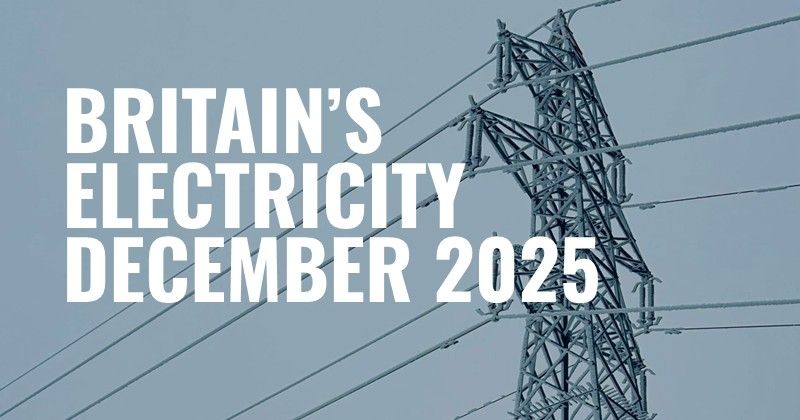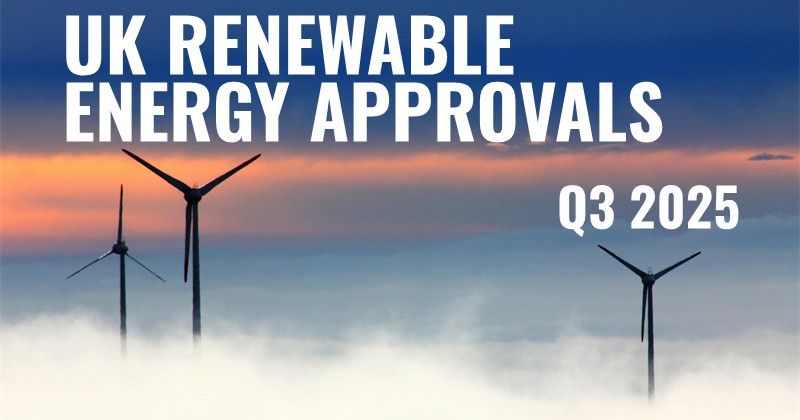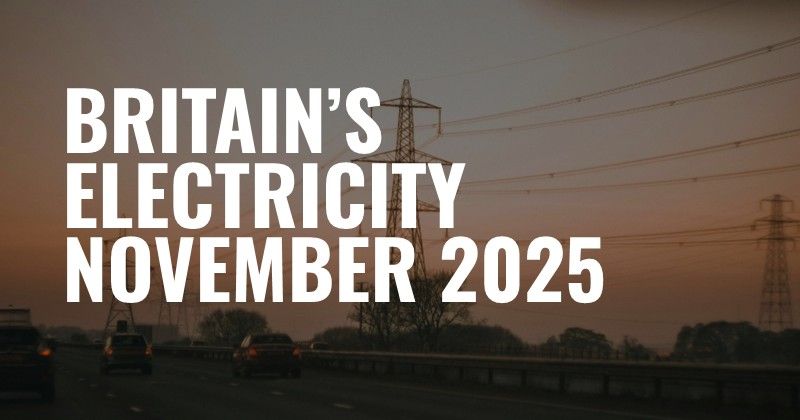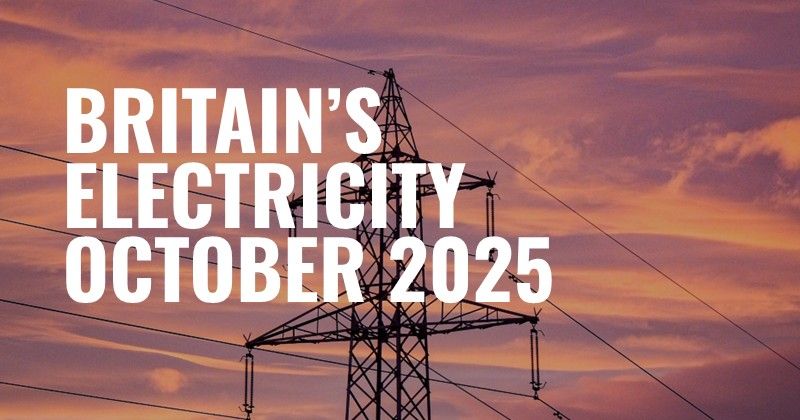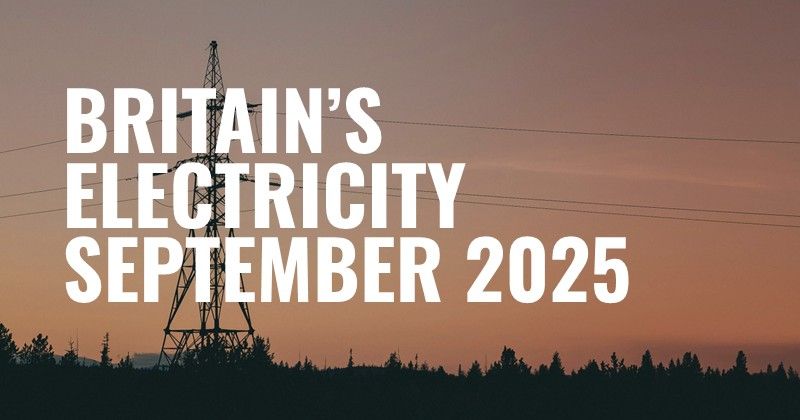Press Release - FTSE 250 Climate Report: The Credibility Gap
PRESS RELEASE
FOR IMMEDIATE RELEASE
20th November 2025
UK Corporate Accountability Exposed as Climate Commitments Fail to Deliver
New Report Reveals FTSE250 Generates 37% of Global Aviation’s Carbon Footprint
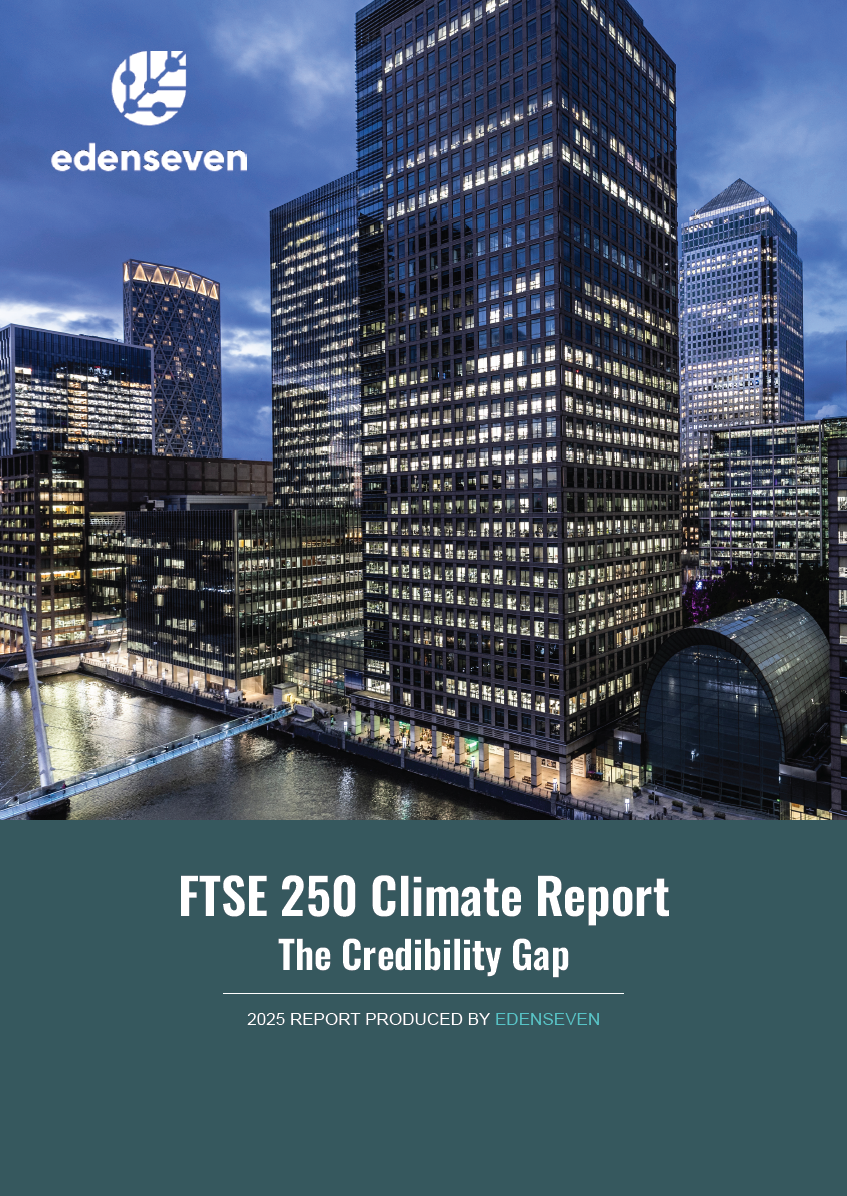
A new analysis of FTSE 250 companies has found that three years of improved climate disclosure and rising net-zero pledges have delivered almost no real-world decarbonisation, raising concerns about the credibility of UK corporate climate action as COP30 continues in Brazil.
The report - The Credibility Gap: FTSE 250 Climate Performance 2022- 2024, an annual carbon accountability report compiled by sustainability consultancy, edenseven, shows that the index generated at least 295.4m tonnes of CO2e last year, equivalent to more than a third (35-37%) of the global aviation industry’s carbon footprint.
It goes on to reveal that operational emissions intensity, which stood at 132.8 tCO2e per £1m revenue in 2022, rose to 141.6 in 2023 and ended at 138.9 in 2024, demonstrating no meaningful progress.
Renewable electricity adoption continues to be a concern with 40% of FTSE250 companies still using little or no renewable energy. Meanwhile, energy efficiency improved by just 4% over the same period.
The latest data findings underscore the scale of the challenge facing UK corporates as pressure mounts to cut emissions and align with the global net-zero goals.
This year’s report introduces for the first time a critical distinction between two halves of the FTSE 250: operational companies, which generate emissions through direct business activity, and capital allocation companies (including investment trusts, REITs and asset managers) whose climate impact comes primarily from the emissions of the assets they finance.
The distinction exposes a significant accountability gap at the heart of the UK’s corporate landscape. While 86% of operational companies have net-zero pledges, the capital allocation companies, which make up 48% of the index and collectively manage £967 billion in assets, have been operating without credible validation frameworks for their climate commitments. Only 30% have operational net-zero targets, 24% have Scope 3 targets, and just 7% have any form of independently validated targets. For financed emissions - the area where these companies have the greatest impact - validation has been effectively non-existent.
The situation has been further undermined by the weakening of the Net-Zero Asset Managers (NZAM) initiative, which relaunched in 2025 with reduced ambition and without a firm 2050 net-zero requirement following political pressure and high-profile exits. As a result, better disclosure and rising ambition, seen across the FTSE 250, are not translating into credible, science-based pathways to real decarbonisation.
The report also highlights sharp sectoral differences. Infrastructure, technology and real estate investment firms show strong disclosure and high levels of commitment, while investment trusts (accounting for over a third of the index) show the weakest climate performance, with minimal targets and almost no validated plans. Transport companies (despite representing only one airline and one shipping services business) also show wide gaps between disclosure and action. Insurance, mortgages and capital markets companies report extensively but have no long-term validated targets, exemplifying the systemic validation shortfall.
Across the FTSE 250, 58% of companies now have operational net-zero pledges and 46% have Scope 3 commitments, yet only 30% have short-term SBTi-validated targets and 18% have validated long-term plans.
Pete Nisbet, managing partner, edenseven, says the stagnation matters for the UK’s economic competitiveness as well as for its climate trajectory:
He says: “The strong presence of capital allocation companies in the FTSE 250 reflects the considerable strength of UK financial services. But commitment and validation levels remain far lower than in operational sectors, creating a systemic accountability gap that could undermine the UK’s competitive position as global sustainable finance frameworks mature.
He adds: “Our experience shows that companies that reduce carbon emissions benefit from lower energy costs, improved productivity, greater investor confidence and stronger long-term performance. The infrastructure for measurement exists. The business case exists. What remains is the regulatory framework to ensure that measurement translates into meaningful decarbonisation. Without independent validation, mandatory accountability and policy support, the UK risks falling behind at a critical moment in global climate negotiations.”
Sustainability leader Lord Redesdale, a prominent voice in the House of Lords on net-zero policy, commented: “This report focuses on the emissions performance of this key market index. Whilst it shows us some great improvements on measurement, reporting and targeting over the past three years, it also shows us that operational emissions reductions (measured by intensity metrics) are not happening fast enough to deliver legislative net-zero compliance. I urge all members of this market index to overcome the barriers and do more and at a quicker pace."
About edenseven
edenseven is a UK-based sustainability and data consultancy helping organisations accelerate progress towards net-zero. Through its in-house carbon accounting platform, cero.earth, and its team of net-zero experts, edenseven simplifies emissions tracking, delivers actionable insights and supports businesses through every stage of their decarbonisation journey.
PRESS CONTACT:
Carole Aye Maung, PR & Media Relations Manager
Note to editors: Trademarks and registered trademarks referenced herein remain the property of their respective owners.
